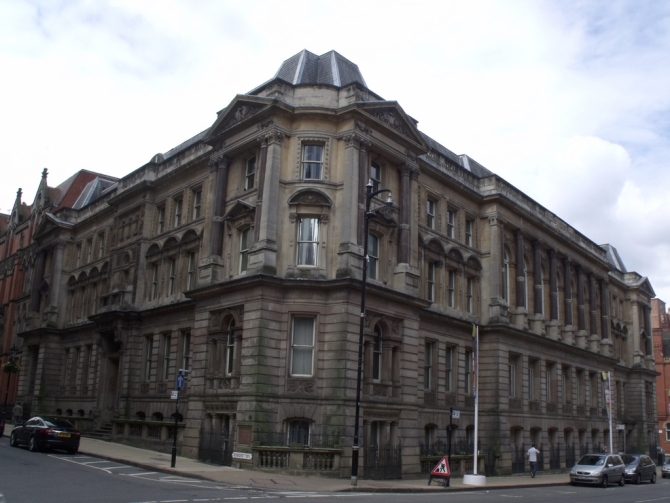An historic Birmingham building, used for decades as civic and institutional offices, is being offered for sale as a commercial investment for the first time in its 120 year history.

Louisa Ryland House — named after a major benefactor to Birmingham in the 1800s — is owned the city council which, until recently, used the 93,000sq ft building as the social services and housing department headquarters.
At one time the Grade II listed property was being considered as a temporary site for Birmingham Conservatoire, whose present home is under threat of demolition as part of the £29m Paradise Circus development, but that option has now been abandoned.
The authority is now pressing ahead with the sale of Louisa Ryland House as part of a cost cutting exercise with its planning department producing a development brief that outlines a series of mixed-use and single-use options acceptable in principle as part of any future upgrade.
“Development proposals will require planning and listed building consent which must be sympathetic to the listed building status and should look to improve its setting and appearance where possible,” the advice document says.
The council’s preference would be for continued use as offices although it would look favourably on conversions that include ground floor restaurants, cafes and bars. Any new owner would acquire a prominent central building with a courtyard which has been part of city life since 1879 and which adjoins the Grade I listed Birmingham School of Art.
The corner site was originally three separate buildings — The Medical Institute at 96 Edmond Street, the Broad School offices at 98 Edmund Street and the Parish Offices building, at 100-102 Edmund Street. All three properties were constructed between 1879-1883.
As a unified building it underwent major conversion and safety work in 1985 with the façade retained and supported by a modern steel frame structure. Reinforced concrete floors, with raised access floors, were installed and suspended ceilings added throughout. The Victorian timber framed windows were also double glazed.
Louisa Anne Ryland was a major benefactor to the then town of Birmingham who became a millionaire on the death of her father, Samuel Ryland, whose family amassed a fortune through its wire drawing businesses. Louisa Ryland also paid for the construction of the city’s School of Art which is now next door to the office block named after her.
Previous Post
Shop Prices Fall at Fastest Rate in 8 Years says BRC